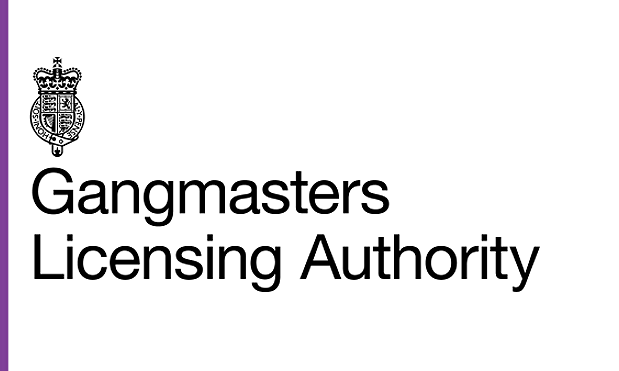 Latest news from the Gangmasters Licensing Authority
Latest news from the Gangmasters Licensing AuthorityThe GLA’s decision to take the licence from a Cambridgeshire gangmaster who paid workers below the legal minimum wage, housed them in unsafe accommodation and transported them in dangerous vehicles has been backed by an appeal court judge.
Roberto Mac Ltd’s offices and the home address of company director Roberto Divkovic – both in March, Cambridgeshire – were raided as part of the multi-agency Operation Endeavour in October 2013.
The GLA immediately suspended and subsequently revoked the licence of the company, which provided agricultural fieldworkers to pick flowers in Cornwall as well as harvest crops at Fenland farms.
Mr Divkovic appealed the revocation decision at a hearing in Bedford earlier this year but Employment Judge Val Adamson dismissed his case in a judgement issued this week.
“The appellant has committed a number of breaches of a number of the respondent’s (GLA’s) licence conditions,” he said.
“All of those breaches found are serious. In considering the appeal, I have considered not only the position of the appellant but also that of the workers the respondent’s licence conditions are designed to protect.
“Not only the number of breaches but the serious nature of all of those found means I must dismiss the appeal.”
Following the operation – jointly led by Cambridgeshire Police and the GLA and assisted by the National Crime Agency, Vehicle and Operator Services Agency and the local council – no criminal charges were brought against the company or Mr Divkovic.
However, from a licensing perspective, the GLA adjudged that the company had failed seven of its prescribed standards. Five of those breached were ‘critical’, and any one such failure is sufficient for a licence to be revoked.
Following the publication of the verdict, GLA Head of Licensing Charlotte Woodliffe said: “This revocation arose out of the licence-holder’s complete lack of control of his business.
“Despite repeated warnings, Mr Divkovic failed entirely to grasp the gravity of the situation and took no steps to ensure his workers were paid properly, housed appropriately and transported safely. For this, he has to face the consequences of his actions.
“This decision from the court not only shows that the judgement of our licensing team was a fair one but it also entirely vindicates the decision to step in swiftly at the time to safeguard scores of workers from continued exploitation.”
The headquarters of Roberto Mac is in High Street, March, and at the time of Operation Endeavour approximately 760 workers were registered at the company with around 400 working at any one time.
On close inspection of evidence recovered during the raid, the GLA found employees had no option but to pay fees for accommodation and transport, which forced their salaries below the National Minimum Wage.
It was also revealed during the hearing that when VOSA had inspected the company’s fleet of 24 buses, eight prohibition notices had been issued immediately – indicating, said the judge, that they ‘had obvious or identifiable defects such that they were unable to carry workers in a safe manner’.
Aside from the state of the vehicles, the judge highlighted concerns raised by the GLA over the drivers used to convey workers, noting that one was found to be over the legal drink drive limit when in control of a Roberto Mac minibus.
A further critical standard failed, contributing to the revocation decision, related to the standard of accommodation provided by the appellant, added the judge.
His report stated that a hostel occupied by Roberto Mac employees on a farm in Wisbech had dirty carpets, no hot water for days at a time and was infested with bed bugs and rodents.
“There were four showers and two toilets for 30 people living there to use,” stated Judge Adamson.
“Only one of the showers had hot water and the heating was switched off. Considering the time of year and the lack of facility for washing with hot water for the numbers of people in the building, I find that accommodation was not safe for the workers which were in it.”
Get The Recruiting Times FREE every Monday – SUBSCRIBE NOW
Recruiters love this COMPLETE set of Accredited Recruitment & HR Training – View Training Brochure








